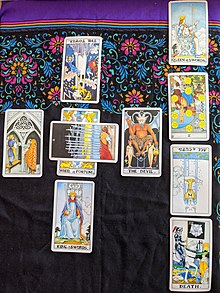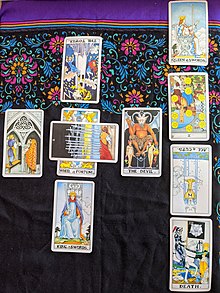You’re about to embark on a fascinating exploration into the origins of tarot cards and the religious traditions that influenced their creation. Unraveling the enigmatic connection between religion and tarot, this article investigates the ancient roots and spiritual underpinnings that have shaped this captivating divination tool. Journey with us as we discover the deep-rooted connections between faith and the mystical world of tarot cards.
History and Origins of Tarot Cards
Tarot cards have a rich and fascinating history that spans several centuries. While their exact origins remain uncertain, they are believed to have originated in Europe during the late Middle Ages. The cards were initially used for a variety of purposes, including playing games, but over time, they became associated with divination and spiritual practices.
Christianity and Tarot Cards
The relationship between Christianity and tarot cards has been one of both acceptance and rejection. Some Christian denominations view tarot cards as tools of divination, which is often considered to be in conflict with Christian teachings. However, there have also been Christian individuals who have embraced the use of tarot cards as a means of gaining insight and guidance.
Development of Christian Tarot Decks
In recent years, there has been a development of tarot decks specifically designed to align with Christian symbolism and beliefs. These decks often incorporate biblical figures, themes, and imagery into the traditional tarot framework. They aim to provide a way for Christian practitioners to engage with tarot while remaining within their religious framework.
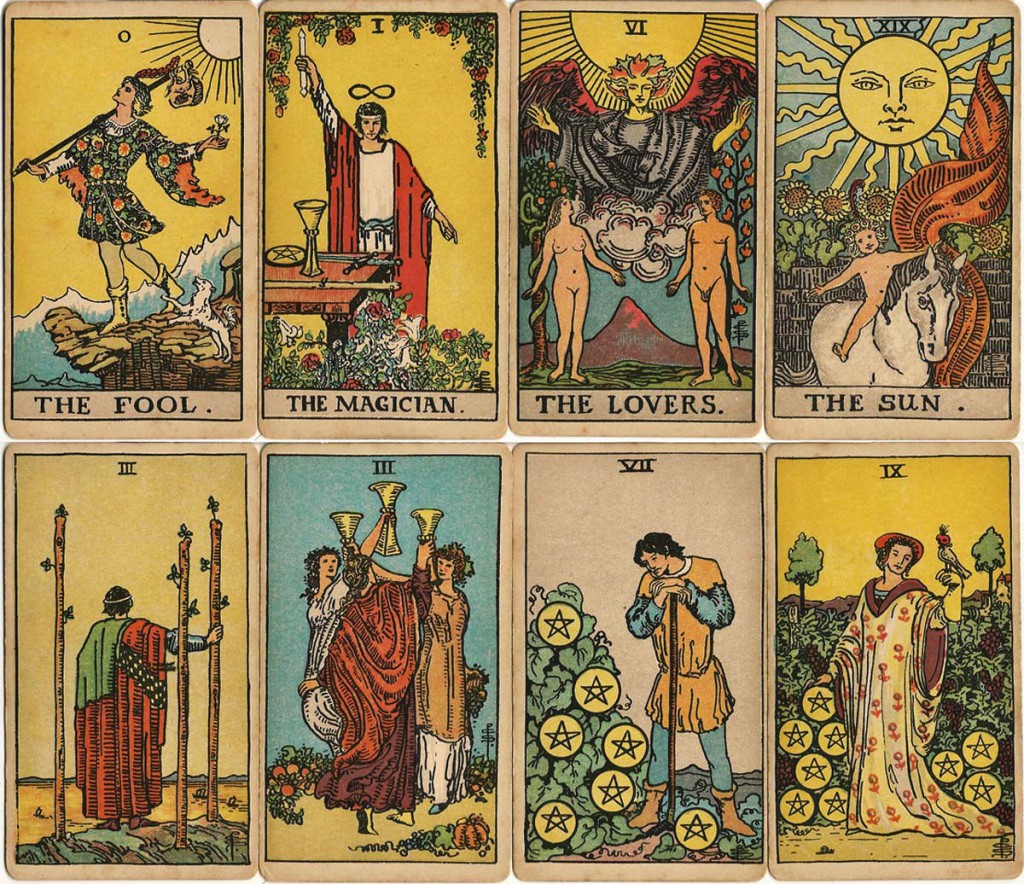
Judaism and Tarot Cards
Judaism, similarly to Christianity, has had a complex relationship with tarot cards. Traditional Jewish teachings discourage the use of divination tools, including tarot cards, as they are seen as a form of idolatry and a deviation from the worship of God alone. However, there have been individual Jews who have explored tarot from a cultural or personal perspective, though it remains an uncommon practice within the faith.
Islamic Perspectives on Tarot Cards
Islamic perspectives on tarot cards also tend to view them as tools of divination, which is generally frowned upon in Islamic teachings. The use of tarot cards is typically considered to be a form of prohibited fortune-telling. However, like with other religious traditions, individual interpretations and practices may vary.
Sufism and Tarot Cards
Sufism, a mystical branch of Islam, has a more nuanced view of tarot cards. Some practitioners of Sufism believe that the symbols and archetypes present in tarot can serve as a means of spiritual exploration and self-discovery. In this context, tarot may be seen as a tool that assists in the development of deeper spiritual understanding and connection.
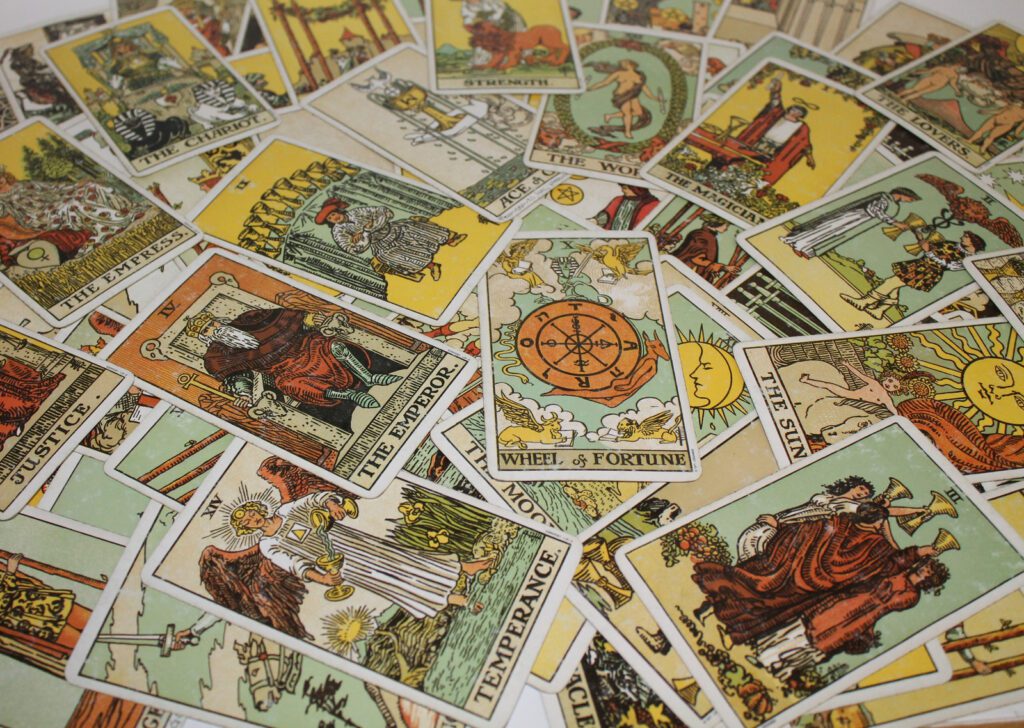
Ancient Egyptian Influence on Tarot
The history of tarot cards is often intertwined with the ancient Egyptian civilization. Many tarot decks incorporate Egyptian symbolism and imagery, such as the presence of Egyptian gods, pharaohs, and hieroglyphics. While the exact connection between tarot and ancient Egypt is debated among scholars, it is clear that Egyptian mythology and culture have had a significant impact on the development and interpretation of tarot cards.
Ancient Greek and Roman Connections to Tarot
In addition to ancient Egyptian influences, the tarot also draws upon elements from Greek and Roman mythology. Many tarot decks feature figures and stories from these mythologies, such as the inclusion of gods and goddesses like Zeus, Hera, Apollo, and Venus. These mythological references add depth and symbolism to the cards, providing further avenues for interpretation and reflection.
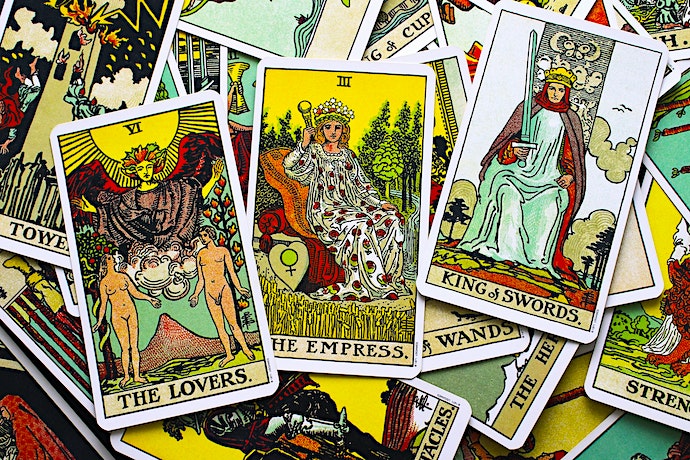
Eastern Religions and Tarot Cards
Tarot cards have also found connections and interpretations within Eastern religions, such as Buddhism and Hinduism. While these connections may not be as prevalent or well-known as those with Western esoteric traditions, they offer unique perspectives and insights to those who are interested in exploring the spiritual dimensions of tarot.
Buddhism and Tarot Cards
In Buddhism, tarot cards can be seen as a means of contemplation and reflection. They can serve as tools for self-analysis and insight, helping individuals to gain a deeper understanding of their own thoughts, emotions, and experiences. Some Buddhist practitioners may choose to incorporate tarot cards into their meditation or spiritual practices as a way to explore and develop their spiritual paths.
Hinduism and Tarot Cards
Tarot cards have also found their place within Hinduism, especially among individuals who are drawn to the mystical and divinatory aspects of the cards. Some practitioners may use tarot as a means of seeking guidance, insight, or confirmation regarding particular situations or decisions in their lives. The rich symbolism and archetypes present in tarot align with the expansive mythological realm of Hinduism, adding a spiritual depth to the practice.
Pagan and Neopagan Tarot Practices
Pagan and neopagan traditions have long embraced tarot cards as a means of divination, spiritual exploration, and self-discovery. Many pagan practitioners find resonance in the symbolism and archetypes present in the tarot and incorporate them into their rituals and magical practices. Tarot cards can offer guidance, reflection, and a connection to the spiritual realms that align with pagan worldviews.
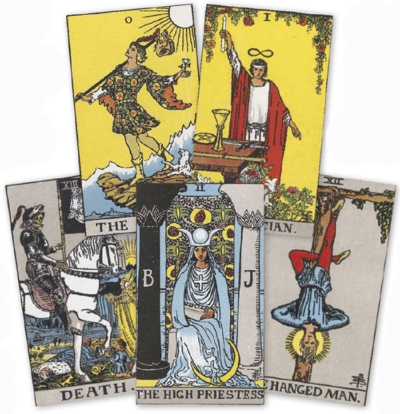
New Age Movement and Tarot Cards
Tarot cards gained significant popularity during the rise of the New Age movement in the 20th century. The New Age movement encompasses a broad range of spiritual and metaphysical beliefs, and tarot cards align well with its focus on personal growth, self-exploration, and spiritual connection. Many individuals within the New Age movement have embraced tarot as a tool for divination, personal development, and accessing higher consciousness.
Personal Beliefs and Tarot
Ultimately, the interpretation and use of tarot cards are highly personal and subjective. While tarot has historical and cultural associations with various religions, it is crucial to recognize that individuals bring their own beliefs, values, and perspectives to the practice of tarot. As such, it is possible for tarot to be adapted and incorporated into a wide range of spiritual and religious frameworks, as well as utilized in a secular or personal context.
Individual Interpretations
One of the most beautiful aspects of tarot is the opportunity it provides for personal interpretation and introspection. When you engage with tarot cards, you are encouraged to trust your intuition and explore the cards’ symbolism and imagery through your unique lens. Every individual will have their own understanding and connection to the cards, allowing for a deeply personal and meaningful experience.
In conclusion, tarot cards have diverse religious and spiritual associations and have found a place in a wide range of traditions and belief systems. From Christianity to Judaism, Islam to Eastern religions, and Paganism to the New Age movement, tarot has been embraced, interpreted, and utilized in various ways by different individuals and communities. Whether as a tool for divination, personal growth, or spiritual exploration, tarot cards offer a unique avenue for self-reflection and connection to the larger mysteries of the universe.
